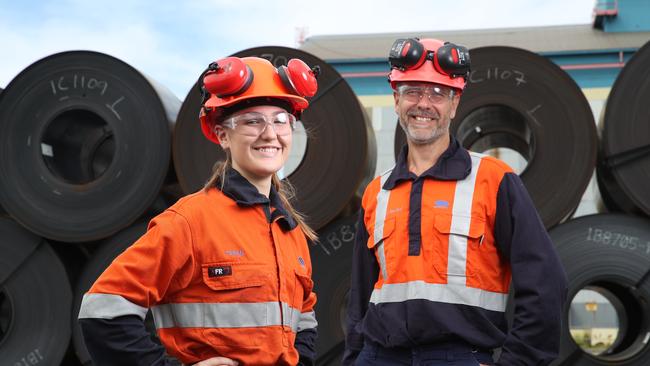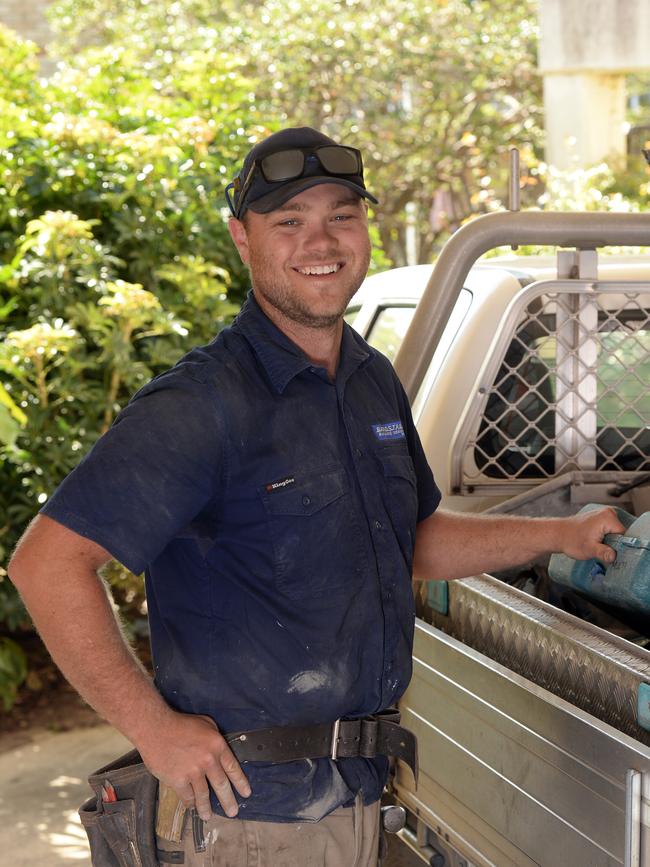Louise Roberts: Why apprentices are vital to our post-covid economy
Opportunities for young people to do a trade after Year 12 are drying up in the new coronavirus economy – with dangerous implications for them and Australia’s security, writes Louise Roberts.
Rendezview
Don't miss out on the headlines from Rendezview. Followed categories will be added to My News.
As we emerge from this COVID-19 lockdown, consider the new and unsettling challenge looming for our secondary schools students.
The one that will affect all of us — parent or not — because it speaks directly to a generation of youth and talent we will rely on to rebuild our infrastructure and manufacturing industry.
It’s the apprentice network.
Those kids, the wise souls that they are, who had recognised pre COVID-19 that gaining a trade qualification unleashed infinitely more financial and career security than sleepwalking their way through a fluffy university degree.
And now those precious apprenticeship opportunities, well they are approaching a rare as hen’s teeth status.
My son is one of these secondary school students enthused about doing a trade after he finishes Year 12 in a few years and building his own business.
But new figures indicate that only 468 apprenticeship vacancies were advertised across Australia in April.
This is a 66 per cent drop from April 2019 and almost 75 per cent from January this year. Just let that sink in before breezily dismissing them as kids who will get over it.
Sure, the pain of pandemic has crucified many Australian industries and household incomes.
But with apprenticeships the pain is even more acute. It is crushing both of earnings and of dreams.

It’s a depressing equation — unemployment goes up, new work dries up and employers take on fewer new apprentices.
Yet what the coronavirus crisis has brought home is our need to boost our advanced manufacturing capability, and not be so dependent on nations like China.
But vacancies in manufacturing and production have dropped a staggering 92 per cent. According to apprentice industry advocate Gary Workman, there were 60 per cent fewer advertised jobs in metal and engineering.
The biggest drop from January was in hospitality, travel and tourism, with vacancies down over 97 per cent while opportunities in sports, recreation, hair and beauty services categories fell 94 per cent, Workman said.
And those young apprentices?
So early in their careers and they are already cannon fodder in the coming recession.
Australia must ensure we do not lose the workforce we will need as part of any recovery effort.
In three or four years time when those apprentices should be matured, skilled and entering the workforce, there will be nobody to do those jobs.
Are we happy to import all of that skilled labour when we are housing a generation of unemployed kids who have never been secure in the workforce?
These are kids never really finding their way back into jobs. And who can blame a small business that says: well, I just don’t know if the work is going to be there in a few years time or consistent enough to take on the commitment of an apprentice.
Then there’s reluctance to take the apprenticeship path and instead opt for the cocoon of university.

Parked there for a few more years brewing a HECS debt in an educational quicksand that probably doesn’t suit them.
Young apprentices who are already well into their training have found it a confusing time.
One I spoke to, in his third year of a carpentry apprenticeship, has faced plenty of job uncertainty, given the fact that his employer had seen forward job bookings either shelved for a later date or cancelled completely.
“I have been very nervous because I have a car loan and have invested in my tools, both a requirement of my job,” he told me. “I have been lucky that my boss has managed to pick up some smaller jobs, but it is very stressful not knowing whether I will have a job next week.”
Another apprentice, a second-year plumber, has seen his hours decreased and is looking for another job to make up the shortfall.
“The work has dried up for a lot of plumbers at the moment and they are only really doing emergency work,” he told me.
“That won’t be the case forever but there might be fewer plumbers and apprentices around to do the jobs because they had to find alternate work.”
The apprentice carpenter also said there was a lot of uncertainty around his TAFE training, and he is worried this will end up costing him more time before he can become fully qualified.
“Most of our TAFE work is practical, and they tried to make it work, but eventually classes were just cancelled. We still haven’t gone back. There was talk about trying to do it online but I don’t know how this will work.

“One of the reasons I chose a trade over uni was because of the opportunity to one day have my own business. I also thought it would mean good job security. Now I am starting to wonder.”
There are many career paths beyond high school. University is one, but it should not be the only one, and it should certainly not be used as a place to go when you don’t think you have an alternative.
Tradespeople literally form the foundations of our homes, workplaces and community facilities.
A shortage in that workforce will mean skyrocketing prices and the knock-on effect will hit everyone, especially when their toilet is blocked on a Saturday morning and they can’t get a plumber for a week.
Our apprentices deserve more consideration as we plan for a post-lockdown Australia — and in the years to come, we won’t be able to do without them.
